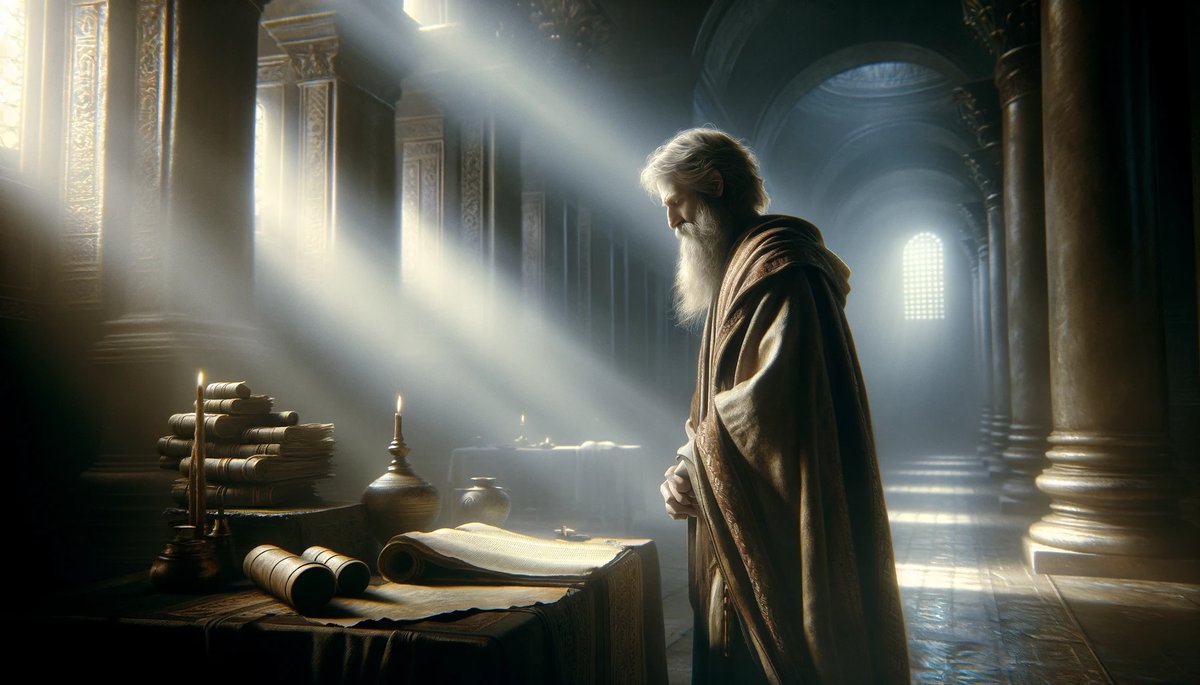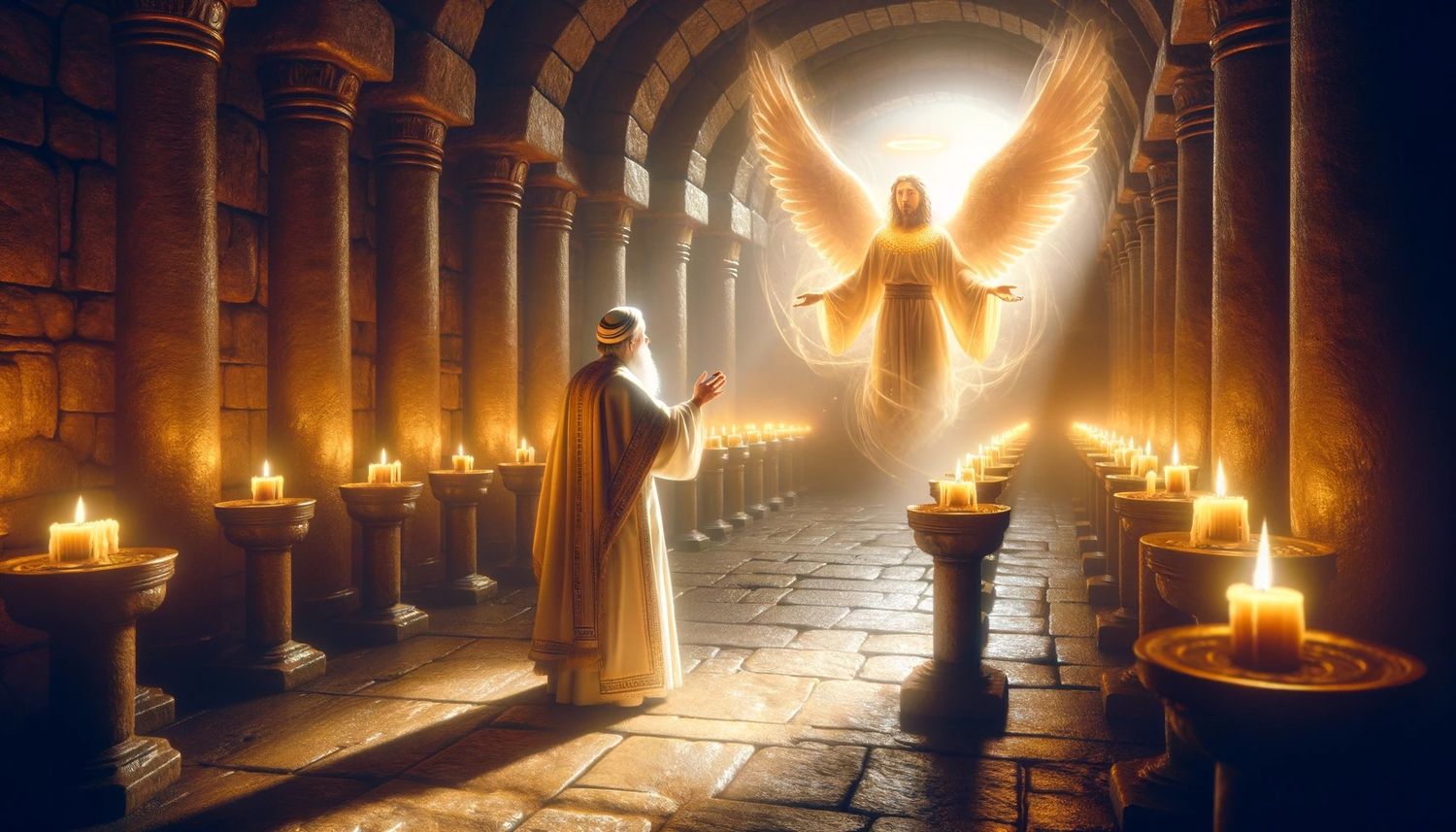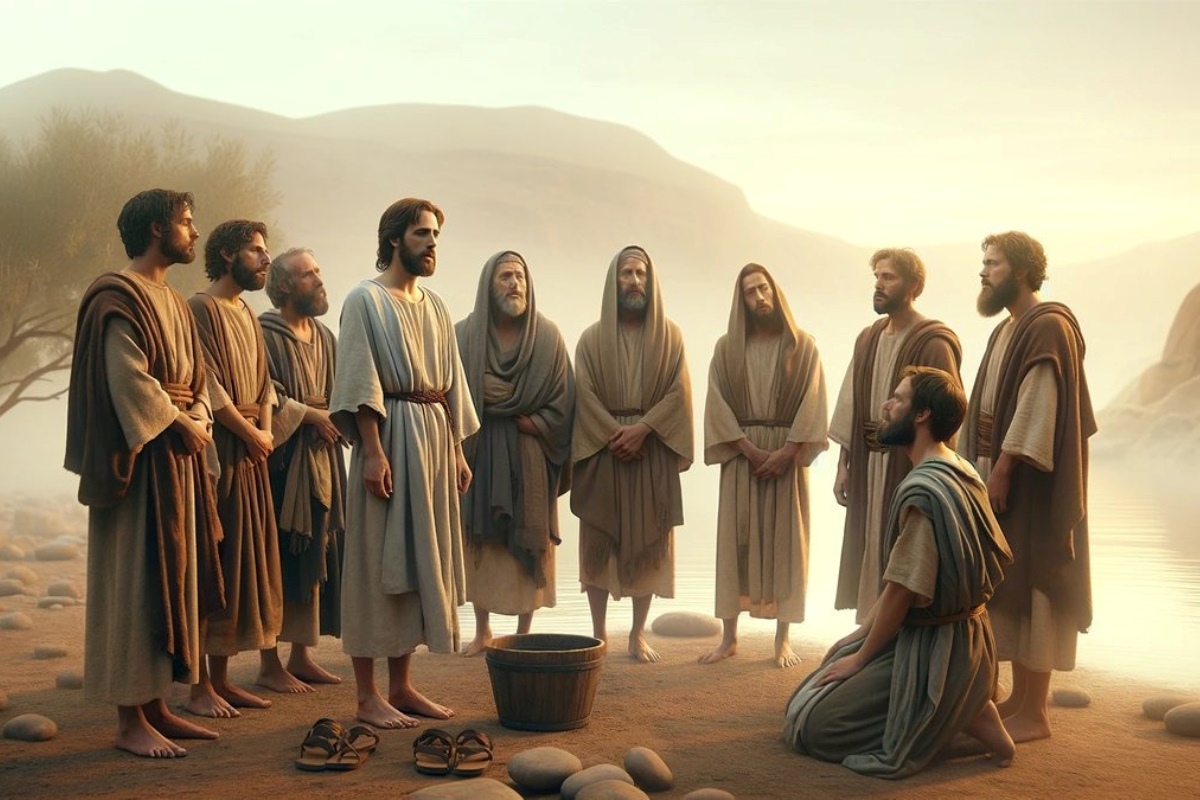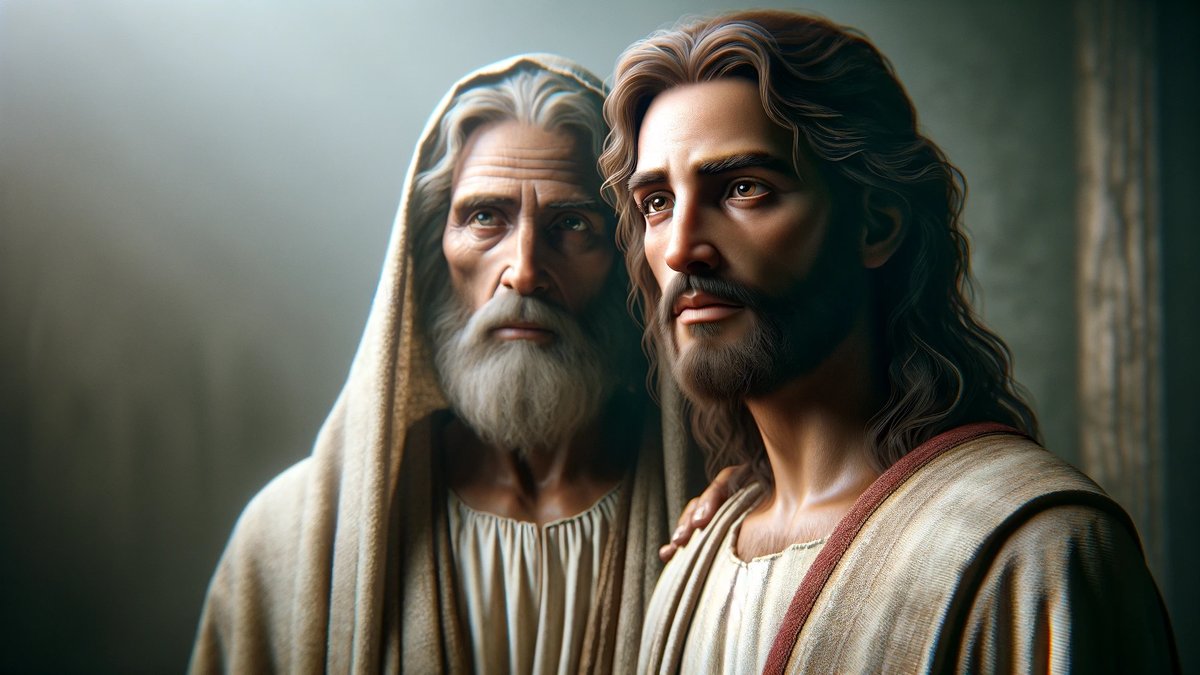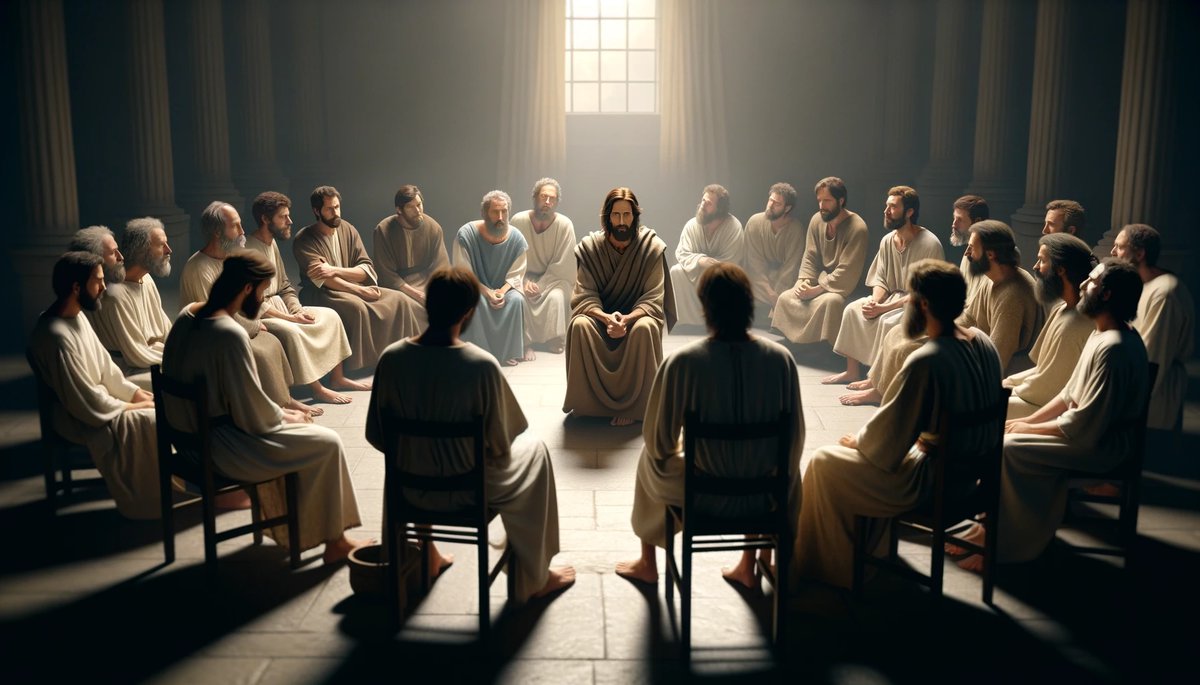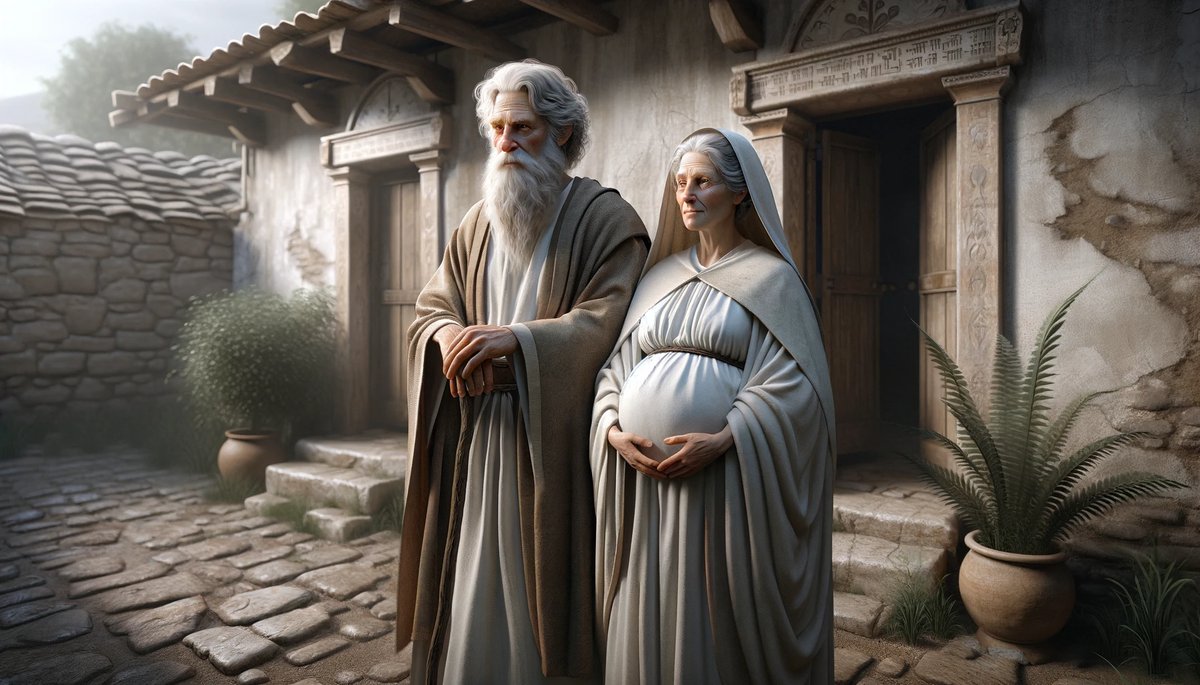Home>Theology and Spirituality>Who Was The Wife Of John The Baptist


Theology and Spirituality
Who Was The Wife Of John The Baptist
Published: February 20, 2024
Jason DeRose, Managing Editor at Christian.net, uses his expertise in religion and journalism to deepen understanding of faith's societal impacts. His editorial leadership, coupled with a strong academic background, enriches the platform’s diverse content, earning him recognition in both journalism and religious circles.
Discover the intriguing story of the wife of John the Baptist and her significance in theology and spirituality. Uncover the historical and biblical insights surrounding her life and legacy.
(Many of the links in this article redirect to a specific reviewed product. Your purchase of these products through affiliate links helps to generate commission for Christian.net, at no extra cost. Learn more)
Table of Contents
Introduction
The figure of John the Baptist is one of great significance in Christian theology and spirituality. As a prominent biblical figure, John the Baptist is known for his role as the herald of Jesus Christ, preparing the way for the Messiah through his preaching and baptizing in the River Jordan. While the Bible provides detailed accounts of John the Baptist's ministry, his personal life, including his family and marital status, has been a subject of curiosity and speculation for centuries.
In this article, we will delve into the intriguing question: Who was the wife of John the Baptist? Exploring the biblical accounts, historical context, and various theories surrounding this enigmatic aspect of John the Baptist's life, we aim to shed light on this lesser-known facet of his story. By examining the available evidence and considering the theological implications, we can gain a deeper understanding of the man who played a pivotal role in preparing the world for the arrival of Jesus Christ.
Read more: Who Was John Baptist
The Biblical Account of John the Baptist
The biblical narrative of John the Baptist is primarily found in the Gospels of Matthew, Mark, Luke, and John, which collectively provide a comprehensive portrayal of his life and ministry. John the Baptist, also known as John the Baptizer, is depicted as a prophetic and ascetic figure, living in the wilderness and preaching a message of repentance in preparation for the coming of the Messiah.
The Gospel of Luke introduces John the Baptist's miraculous birth to elderly parents, Zechariah and Elizabeth, who were previously unable to conceive. The angel Gabriel appears to Zechariah, foretelling the birth of a son who will be filled with the Holy Spirit from birth and will turn many of the children of Israel to the Lord their God. This divine announcement sets the stage for John the Baptist's extraordinary destiny.
As John grows, he embraces an ascetic lifestyle, dwelling in the wilderness and subsisting on a diet of locusts and wild honey. His distinctive appearance and powerful preaching draw crowds from Jerusalem, Judea, and the surrounding regions, as he calls people to repentance and baptism in preparation for the imminent arrival of the Messiah.
John's baptismal ministry culminates in the baptism of Jesus in the River Jordan, a pivotal event in Christian theology symbolizing the beginning of Jesus' public ministry. John recognizes Jesus as the long-awaited Messiah and humbly acknowledges that Jesus must increase while he decreases.
The Gospels also depict John's fearless denunciation of moral wrongdoing, including his public criticism of Herod Antipas, the ruler of Galilee, for his unlawful marriage. This act of prophetic truth-telling ultimately leads to John's imprisonment and execution, highlighting the cost of unwavering commitment to righteousness and justice.
Overall, the biblical account of John the Baptist portrays him as a courageous and uncompromising prophet, fulfilling the ancient prophecies of preparing the way for the Lord. His unwavering dedication to his divine calling and his pivotal role in heralding the arrival of Jesus Christ continue to inspire and captivate believers around the world.
This comprehensive overview of the biblical account of John the Baptist sets the stage for a deeper exploration of the intriguing question regarding his marital status and the identity of his wife.
The Role of John the Baptist's Wife
The biblical accounts of John the Baptist do not explicitly mention a wife or provide specific details about his marital status. However, the absence of direct references to a wife does not diminish the potential significance of exploring the hypothetical role and influence of a potential wife in John the Baptist's life and ministry.
In the historical and cultural context of ancient Judea, marriage was a fundamental institution, deeply embedded in societal norms and religious traditions. It served as a cornerstone of family life and community cohesion, carrying profound implications for personal identity and social standing. Considering the prevailing customs of the time, it is plausible to contemplate the presence of a wife in John the Baptist's life, even though her identity remains unrecorded in the biblical texts.
If John the Baptist indeed had a wife, her role would have been multifaceted and impactful. As the spouse of a prominent religious figure, she might have provided essential support and companionship, standing by John's side through the challenges and triumphs of his prophetic ministry. Her presence could have symbolized the humanizing aspect of John's life, offering a glimpse into his personal relationships and the complexities of balancing spiritual devotion with familial responsibilities.
Furthermore, John the Baptist's wife, if she existed, could have played a significant role in the practical aspects of daily life, ensuring the well-being of their household and potentially participating in acts of hospitality and charity. Her influence within their community might have extended to offering guidance, wisdom, and compassion to those who sought solace or counsel from the revered prophet's family.
While the absence of explicit references to John the Baptist's wife in the biblical accounts leaves room for speculation, it also invites contemplation of the broader theological implications. The enigmatic silence surrounding his marital status prompts reflection on the nature of his singular devotion to his divine calling and the potential sacrifices that may have been intertwined with his personal life.
Ultimately, the hypothetical role of John the Baptist's wife serves as a thought-provoking aspect of his narrative, inviting contemplation of the intricate interplay between human relationships and spiritual vocation. It underscores the complexity of understanding historical figures within the framework of their personal lives and societal contexts, prompting a deeper appreciation for the multifaceted dimensions of their legacies.
In exploring the potential role of John the Baptist's wife, we are prompted to consider the profound impact of intimate relationships within the tapestry of human experience, offering a lens through which to contemplate the intertwining of the sacred and the mundane in the lives of revered historical figures.
Theories and Speculations about John the Baptist's Wife
The absence of explicit biblical references to John the Baptist's wife has sparked a wide array of theories and speculations throughout history. While the Gospels remain silent on this aspect of John the Baptist's personal life, scholars, theologians, and enthusiasts have engaged in conjecture and exploration, seeking to unravel the mystery surrounding his potential marital status.
One prevailing theory suggests that John the Baptist may have embraced an ascetic lifestyle that included a vow of celibacy, thereby forgoing the institution of marriage. This perspective aligns with the traditions of certain ascetic communities and individuals who chose to devote themselves entirely to spiritual pursuits, renouncing worldly attachments, including marriage and family life. Proponents of this theory argue that John's radical commitment to his prophetic mission may have necessitated a deliberate detachment from the conventional responsibilities and distractions associated with marriage.
Conversely, some scholars propose the existence of a hypothetical wife, positing that she may have remained in the background of the biblical accounts, unmentioned yet present in John the Baptist's life. This conjecture invites contemplation of the potential reasons for her absence from the gospel narratives, ranging from the deliberate focus on John's singular ministry to the cultural and literary conventions of the time, which may have marginalized the portrayal of women in historical and religious texts.
Another line of speculation revolves around the identification of John the Baptist's wife with various historical and biblical figures, including the exploration of potential connections between his family and other prominent individuals of the era. This avenue of inquiry delves into the broader historical context, seeking to uncover potential clues or references that may shed light on the enigmatic presence of a wife in John the Baptist's life.
Furthermore, the absence of explicit references to John the Baptist's wife has prompted theological reflections on the nature of his prophetic calling and the potential implications of his marital status. This contemplative approach invites consideration of the broader theological themes of sacrifice, devotion, and the intricate interplay between personal relationships and spiritual vocation.
In essence, the theories and speculations about John the Baptist's wife offer a captivating glimpse into the enduring intrigue surrounding this aspect of his life. While the absence of definitive evidence precludes conclusive assertions, the ongoing exploration of this enigma underscores the enduring fascination with the complexities of historical and biblical figures, inviting contemplation of the interwoven tapestry of human experience and divine purpose.
Conclusion
The question of who was the wife of John the Baptist remains shrouded in mystery, inviting contemplation of the enigmatic aspects of his personal life. While the biblical accounts of John the Baptist's ministry provide profound insights into his prophetic calling and pivotal role in preparing the way for Jesus Christ, the absence of explicit references to his marital status has sparked centuries of speculation and curiosity.
The enduring fascination with the potential existence of John the Baptist's wife reflects the timeless allure of historical and biblical enigmas, prompting contemplation of the complexities and nuances of revered figures from antiquity. The absence of direct evidence regarding his marital status invites us to consider the broader theological and historical implications, offering a lens through which to explore the interplay between human relationships and spiritual devotion.
The hypothetical presence of a wife in John the Baptist's life, if indeed true, serves as a poignant reminder of the intricate balance between personal relationships and divine calling. It underscores the multifaceted dimensions of human experience, encompassing the sacred and the mundane, the spiritual and the relational. The absence of explicit references to his wife in the biblical narratives invites us to reflect on the potential sacrifices and complexities inherent in the pursuit of a singular, unwavering devotion to a divine mission.
Furthermore, the enduring allure of this question invites us to contemplate the broader themes of historical interpretation and the complexities of reconstructing the lives of revered figures from antiquity. It prompts us to acknowledge the limitations of historical records and the enduring mysteries that continue to captivate the human imagination.
In conclusion, the question of John the Baptist's wife serves as a compelling invitation to delve into the intricate interplay between historical inquiry, theological reflection, and the enduring allure of biblical enigmas. While the specific details may remain veiled in the mists of time, the exploration of this enigma enriches our understanding of the complexities of human experience and the enduring fascination with the lives of revered historical figures.
